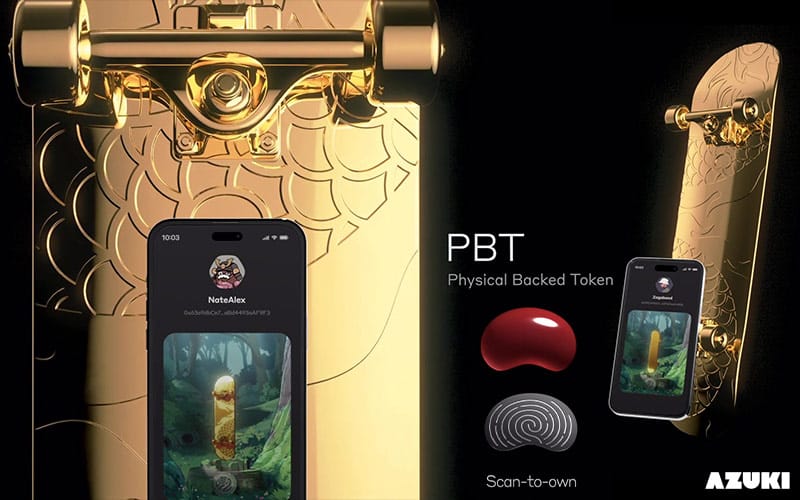Popular NFT project Azuki launches Physical Backed Token (PBT) which is an open-source token standard that ties a physical good to a digital token on the Ethereum blockchain.
PBT is a new Ethereum token based on the ERC721 standard, linking physical entities representing tokens on Ethereum.
PBT will use the BEAN chip, a cryptographic chip that attaches objects to PBT to verify authenticity and proof of ownership and can generate asymmetric key pairs, enabling decentralized authentication and tracking ownership of physical items.
The tokens representing existing physical items will fork after minting. Additionally, PBT is a standard that has decentralized identity verification, tracks physical ownership, is entirely on the blockchain, and requires no centralized servers.
If the actual item is sold or donated to a new owner, the next owner can use the “scan to own” feature of the same item, allowing PBT to be transferred from the previous owner to the new owner.
Finally, PBT is completely open source and is now available for free to the community. Additionally, the project is released under the MIT License – a license to use open-source software developed at MIT.
Once the community was presented with an initial look at PBT, Azuki immediately brought a specific collection directly related to the newly launched product. That’s the “Golden Skateboard”, a limited edition of nine uniquely designed gold-plated skateboards, all plated in 24K gold.
The Golden Skateboard is fully integrated with the BEAN chip and will be officially launched on the Azuki auction homepage on October 21st.
Given that the current NFT market struggled to recover from this crypto winter, this seems to be a fantastic effort by Azuki. When the founder once admitted to abandoning three other ventures, the basic price of NFT Azuki also dropped significantly, and the decline was even more pronounced.






